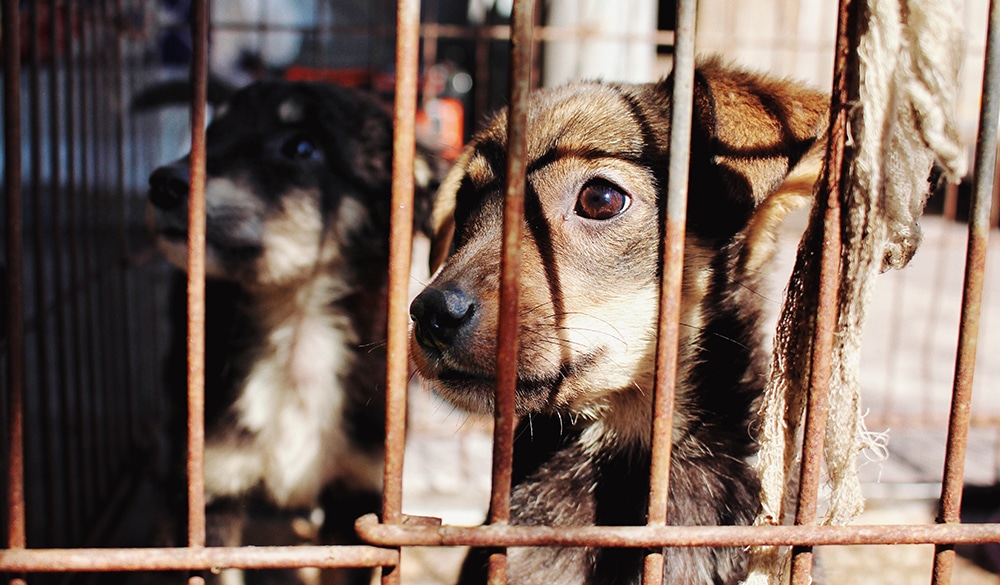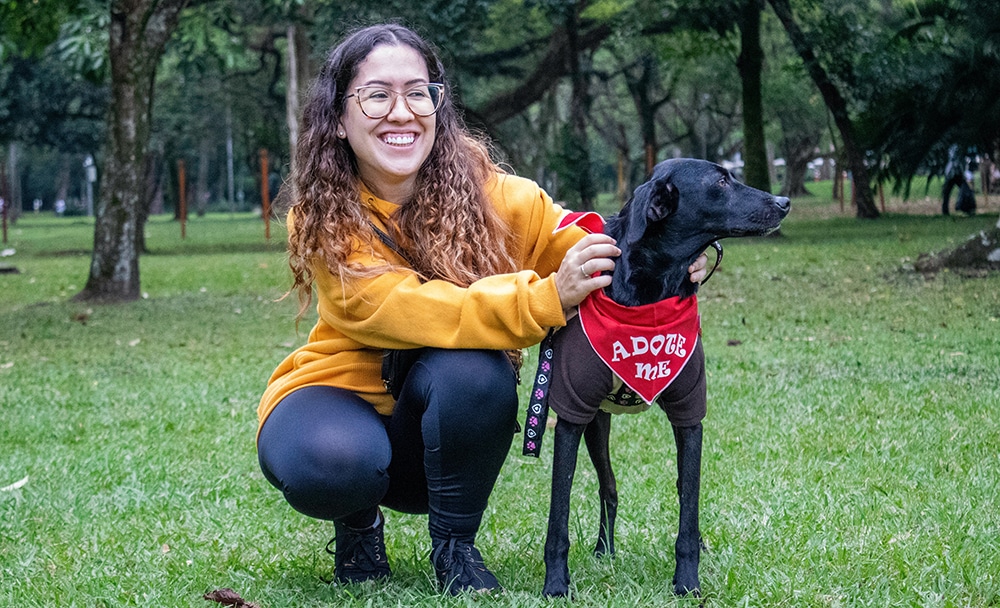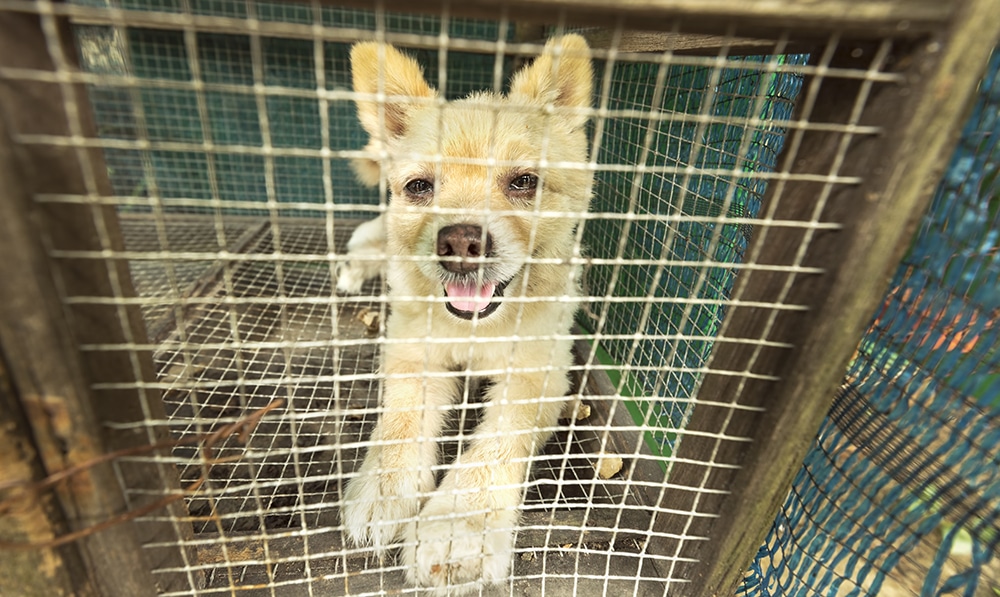Purchasing a puppy from a pet store or online may seem like the proper way to get a new dog. However, these establishments are a part of the puppy mill pipeline that encourages the mistreatment of dogs for profit. Though not illegal, puppy mills use inhumane methods of supplying pet stores and online spaces with puppies that are not in the best of health.
To ensure you are not adding to the demand, look for ethical breeders or go to your local shelter or rescue. This blog provides information on the problems with puppy mills, how to find ethical breeders and adopting from shelters and rescues.
The Problems with Puppy Mills
What are Puppy Mills?
Puppy mills are high-volume dog breeding facilities or factory farms that consistently force breed female dogs to produce a high rate of puppies to sell at a profit. These establishments sell their puppies through online classified ads, pet stores, internet sales and flea markets. The people who run puppy mills do not see the animals as living creatures but as a cash crop. It is estimated that there are around 10,000 puppy mills currently in the United States from which 2.6 million puppies are sold. Insufficient and weak laws allow these places to continue to be in operation.
Puppy Mill Conditions
The conditions of puppy mills are inhumane. Puppy mill owners use makeshift wood or wire cages stacked on top of each other where they cram as many puppies and adult dogs as they can in that space. The canines are covered in feces and urine as they stay in these cramped cages seven days a week. The dogs are left exposed to the elements of extreme heat, severe cold and rain storms. The animals suffer from sickness and malnutrition as they never have veterinary care and are severely underfed.
Female dogs are bred every time they are in heat which is generally twice a year. This results in the mother dogs constantly either being pregnant or nursing. Their litters are ripped from them when their puppies are at six weeks old preventing socialization. The horrible conditions of malnutrition lead many female dogs to eventually not be able to have any more babies. When this happens they are either abandoned or killed.
Many of the puppies do not survive the extremely harsh conditions of the puppy mills. The ones that do are then subject to horrendous traveling conditions in trucks, traitor-trailers and planes that take them hundreds of miles to the subpar care of the pet stores.

Health and Behavioral Problems in Puppy Mill Dogs
Puppies born in a puppy mill come with a long list of problems. Online ads and pet stores never advertise that the majority of their puppies come with kennel cough, distemper, heartworm, intestinal parasites, parvovirus, giardia, mange or upper respiratory infections.
The overbreeding and inbreeding that happens in a puppy mill has a direct effect on a puppy’s genetic makeup. Puppy mill owners do not monitor the breeding as their focus is on making a profit and not producing high quality puppies. Genetic defects such as severe allergies, heart disease, cancer, deafness, blood disorders, epilepsy, diabetes and eye problems either show up right away or are health problems that arise as the puppy ages. Puppy mill dogs are also at high risk of personality disorders such as aggression, fear, anxiety and extreme shyness.
This long list of problems results in a high veterinary bill for the new pet owner and the beginning of a difficult journey in handling their new puppy. Many of these dogs are quickly disposed of to a shelter by their unprepared owners.

Ethical Dog Breeders
Not all those who breed dogs are puppy mills. When looking for a new pet, it is important to do research before jumping in and purchasing.
Where to Find Ethical Breeders
Most ethical and reliable breeders have a well known reputation for providing healthy animals to good homes. Many have strong ties to veterinarians as they work closely with the vets to make sure their dogs are in the best condition. To find these responsible breeders talk to your local breeder clubs, your local trusted veterinarian or visit a professional dog show.
Signs of a Ethical Breeder
The signs that a breeder is ethical are they keep their dogs in a clean and spacious area, they breed sparingly, they can show you up-to-date records of vet visits for the puppy and the parents, they want to get to know you and they have you sign a contract.
A responsible dog breeder never gives a puppy to the first person who asks. They never sell through a pet store or in any way where they are not able to personally meet and interview the potential dog owner. They are transparent and heavily encourage the potential dog owner to visit to see where the puppy was born and raised. Getting to personally know who will be taking one of their dogs is very important to ethical breeders.
Providing papers does not matter as the AKC does not do any health or safety checks when registering a dog. Instead follow this checklist to see if the breeder you are interested in buying from is reputable. If the breeder you are speaking to does not meet all of these requirements, then it is better to look elsewhere to not risk getting an unhealthy puppy mill dog.

Adopting from Shelters and Rescues
To help curb the problem of puppy mills, the Humane Society encourages potential pet owners to first look for canines at shelters and rescues. Purchasing through an ethical breeder can be very expensive and puppies are not always available. At shelters and rescues there is rarely a shortage of dogs and puppies looking for new homes.
Shelters and rescues spay and neuter pets, do the necessary veterinary care and provide pet behavior support programs. These establishments have every kind of dog in breed, age and size. Workers guide potential pet owners on what type of dog is a good fit for their home.
A potential dog owner may have their heart set on a specific breed. There are many rescues that focus on one specific dog breed. Search online with the name breed and the word rescue to discover any nearby.
To learn more about the difference in mutts and purebreds and how to find the right fit for you and your family read this blog.

Cut off the Demand to Stop the Supply
Puppy mills exist because there is a demand. Many people are not aware that when they walk into a pet store or go online to purchase an adorable puppy their money is going to support the inhumane conditions of thousands and potentially millions of dogs. Pet owners need to purchase from ethical breeders or get their dog from a shelter and rescue help to stop the demand. If pet stores and online ads are not able to sell puppies to anyone, then there is no need for puppy mills.



